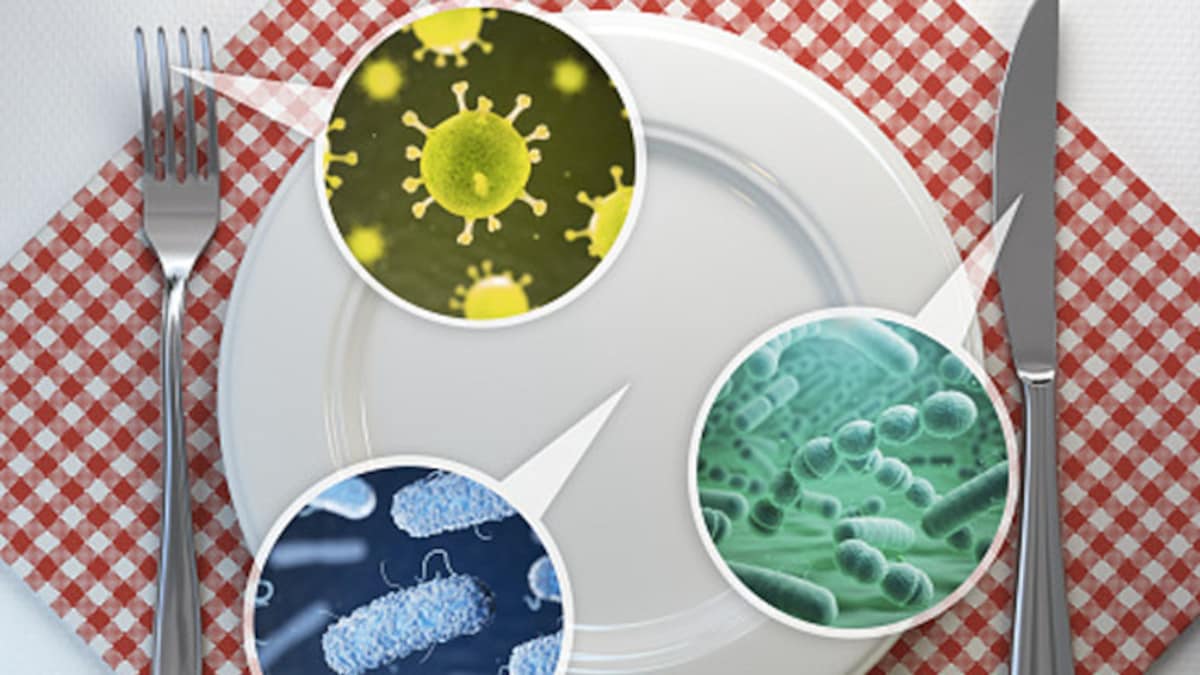How To Avoid Food Poisoning In Monsoon – Experts Reveal
The monsoon rains give a much-needed respite from the blazing heat of the summer, but also give rise to water-borne, air-borne and food-borne diseases. Foods, in unsanitary conditions, become a breeding ground for bacteria like Staphylococcus and E. coli, which may even lead to food poisoning. Symptoms may include vomiting, nausea, diarrhoea and in severe cases, headache, fever and body pain. It is of utmost importance to eat your foods wisely to preclude all foodborne illnesses in this weather. Here are some tips that may help you keep your diet clean and your body healthy in the monsoon.
Centers For Disease Control And Prevention (CDC) stresses on following four important steps to keep food safe in the kitchen and kick the germs to the curb.
(Also Read: 5 Tips To Properly Wash Fruit And Vegetable Produce Before Consumption)

Cleaning fruits and vegetables before consumption is important.
Here’s How To Avoid Food Poisoning In Monsoon:
1. Clean:
We all know how important it is to wash fruits and vegetables under running water once they are home from the market. CDC also suggests keeping our hands clean. Wash your hands with soap and water for at least 20 seconds before, during and after cooking. And don’t forget to wash your hands again right before eating. Bacteria can survive on all kinds of surfaces. So always wash utensils, chopping boards, cutlery and countertops with hot soapy water after contact with raw or cooked food.
2. Separate:
The idea is to prevent cross-contamination. Always keep raw meat, poultry, seafood, and eggs separate from other foods, especially cooked foods. Raw foods can easily spread germs to other foods and surfaces. So, keep them separate in grocery bags while shopping, in the refrigerator while storing, and use them in separate cutting/chopping boards and utensils.
3. Cook:
Food should be cooked to the right temperature; the internal temperature should be enough to kill germs residing inside the food. In case you are not sure if your meat is cooked properly, you can always use a food thermometer. Follow these guidelines when using it:
- Whole cuts of beef, veal, lamb, and pork, including fresh ham (raw): 145 degrees F (then allow the meat to rest for 3 minutes before carving or eating)
- Fish with fins: 145 degrees F or cook until flesh is opaque
- Ground meats, such as beef and pork: 160 degrees F
- All poultry, including ground chicken and turkey: 165 degrees F
- Leftovers and casseroles: 165 degrees F
4. Chill:
Food kept out at room temperature for long can propel the growth of bacteria. That’s why refrigerators are used to store raw and cooked foods. The refrigerator temperature should be at 40 degrees F or below, and the freezer temperature at 0 degree F or below. Cooked meals should be refrigerated within two hours of cooking.
(Also Read: How To Wash Your Greens: 5 Expert Tips To Clean Your Leafy Vegetables)

Make sure you store food in refrigerator before it goes bad.
Photo Credit: iStock
CDC also warns against eating certain foods by people who are more prone to catching stomach infections –
- Undercooked or raw meat and seafood
- Raw or undercooked sprouts
- Raw milk and juices
- Soft cheese unless it is made with pasteurised milk
Being cautious about your diet will go a long way in keeping you and your family safe and healthy during monsoon.
For all the latest health News Click Here

